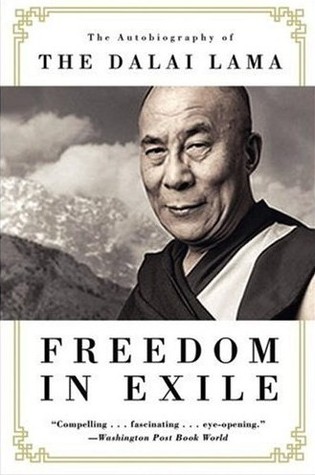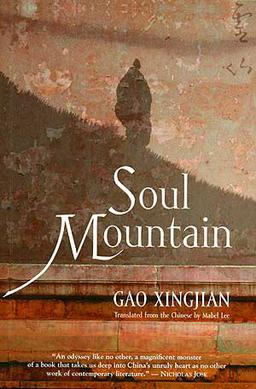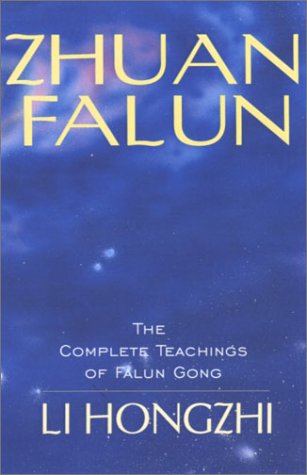China Official Rugulations of Banned Materials
-
Chinalawinfo.com This link opens in a new windowEnglish version: http://www2.lib.ku.edu/login?url=https://www.pkulaw.com/english/
Regulation on the Administration of Publication (2016 Revised)
Article 25 The following contents are prohibited from being included in any publication:
第二十五条 任何出版物不得含有下列内容:
1.Which object the basic principles determined in the Constitution;
反对宪法确定的基本原则的;
2.Which endanger the unity of the nation, sovereignty or territorial integrity;
危害国家统一、主权和领土完整的;
3.Which divulge secrets of the State, endanger national security or damage the honor or benefits of the State;
泄露国家秘密、危害国家安全或者损害国家荣誉和利益的;
4.Which incite the national hatred or discrimination, undermine the solidarity of the nations, or infringe upon national customs and habits.
煽动民族仇恨、民族歧视,破坏民族团结,或者侵害民族风俗、习惯的;
5.Which propagate evil cults or superstition;
宣扬邪教、迷信的;
6.Which disturb the public order or destroy the public stability;
扰乱社会秩序,破坏社会稳定的;
7.Which propagate obscenity, gambling, violence or instigate crimes;
宣扬淫秽、赌博、暴力或者教唆犯罪的;
8.Which insult or slander others, or infringe upon the lawful rights and interests of others;
侮辱或者诽谤他人,侵害他人合法权益的;
9.Which endanger public ethics or the fine folk cultural traditions;
危害社会公德或者民族优秀文化传统的;
10. Other contents prohibited by laws, administrative regulations or provisions of the State.
有法律、行政法规和国家规定禁止的其他内容的。
-
新闻出版总署关于查禁印刷法轮功类非法出版物,进一步加强出版物印刷管理的通知 (1999年8月5日 新出技[1999]989号)Falun Gong publications
-
国家民族事务委员会、中共中央宣传部等部门关于严禁在新闻出版和文艺作品中出现损害民族团结内容的通知 【法宝引证码】CLI.16.16090National unity and minority issues
Ethnic Issues -- Political prohibited
-
 Freedom in exile : the autobiography of the Dalai Lama.
by
Call Number: BQ7935.B777 A3 1991Publication Date: 1990[San Francisco, Calif.] : HarperPerennial, 1991, c1990.
Freedom in exile : the autobiography of the Dalai Lama.
by
Call Number: BQ7935.B777 A3 1991Publication Date: 1990[San Francisco, Calif.] : HarperPerennial, 1991, c1990. -
Red Dust by
Call Number: DS712 .M325 2001ISBN: 0375420592Publication Date: 2001-11-06It is an arduous three-year voyage that takes him not only through little-traveled regions of China, Myanmar and Tibet, but through a careful examination of what it means to be a Buddhist, to live in post-Mao China, and to exist in his own skin. Ma narrates in prose that is spare and often beautiful his encounters with people who live in a region that "even today... is a place of banishment, populated by political prisoners, descendants of Turkic migrants, and the ghosts of buried cities." -
 Shu nian xue shi hou : 2008 nian Xizang shi jian da shi ji 鼠年雪獅吼: 2008 年西藏事件大事記
by
Call Number: DS786 .W42165 2009ISBN: 9867178807Publication Date: 2009Wei Se, recipient of the 2010 Courage in Journalism Award granted by International Women's Media Foundation, was a Tibetan magazine editor from 1990 to 2004. Soon after her book Xizang Biji (Notes on Tibet) was banned by the government for “political mistakes”, she was dismissed. Wei reports the 2008 Tibet protest and her thoughts and attitudes in this book. “She is the one who dares to tell the truth” commented by Tibetan scholars.
Shu nian xue shi hou : 2008 nian Xizang shi jian da shi ji 鼠年雪獅吼: 2008 年西藏事件大事記
by
Call Number: DS786 .W42165 2009ISBN: 9867178807Publication Date: 2009Wei Se, recipient of the 2010 Courage in Journalism Award granted by International Women's Media Foundation, was a Tibetan magazine editor from 1990 to 2004. Soon after her book Xizang Biji (Notes on Tibet) was banned by the government for “political mistakes”, she was dismissed. Wei reports the 2008 Tibet protest and her thoughts and attitudes in this book. “She is the one who dares to tell the truth” commented by Tibetan scholars.
National Image and Moral Standard
-
 Dong gong xi gong East palace, West palace 东宮西宮
by
Call Number: DVD PN1997 .D66 2003ISBN: B00019GI9CPublication Date: 2003East Palace, West Palace is the first Mainland Chinese movie with an explicitly homosexual theme. The title of the movie derives from the two parks near the Forbidden City - the East Palace and the West Palace. The two parks, specifically their public washrooms, are notorious for being places of congregation for the homosexuals in Beijing during the night. The movie was smuggled out of China for post-production in France. It premiered at the Mar del Plata Film Festival in Argentina in November 1996 and at the 1997 Cannes Film Festival as part of the Un Certain Regard competition.
Dong gong xi gong East palace, West palace 东宮西宮
by
Call Number: DVD PN1997 .D66 2003ISBN: B00019GI9CPublication Date: 2003East Palace, West Palace is the first Mainland Chinese movie with an explicitly homosexual theme. The title of the movie derives from the two parks near the Forbidden City - the East Palace and the West Palace. The two parks, specifically their public washrooms, are notorious for being places of congregation for the homosexuals in Beijing during the night. The movie was smuggled out of China for post-production in France. It premiered at the Mar del Plata Film Festival in Argentina in November 1996 and at the 1997 Cannes Film Festival as part of the Un Certain Regard competition. -
 Ba wang bie ji Farewell my concubine 霸王别姬
by
Call Number: DVD PN1997 .B37 2002ISBN: 7880051945Publication Date: 2002Story that spans more than 50 years in the lives of two men at the Peking Opera, friends since childhood, and the woman who comes between them. Also an absorbing drama of the period in Chinese history from the warlord era through the Cultural Revolution.
Ba wang bie ji Farewell my concubine 霸王别姬
by
Call Number: DVD PN1997 .B37 2002ISBN: 7880051945Publication Date: 2002Story that spans more than 50 years in the lives of two men at the Peking Opera, friends since childhood, and the woman who comes between them. Also an absorbing drama of the period in Chinese history from the warlord era through the Cultural Revolution.
Literary Inquisition

This page was created in conjunction with the "Banned Book Exhibit 2012," an IAS exhibit series held in Fall 2012. Featured are types and examples of material under censorship in ancient and modern China. Included are a few Ming and Qing era novels which were censored at their first publication, and are now considered classics. Differing political thought, religious expression, ethnic group movements, and immoral contents have all been censored under Communist China. Censorship has been practiced throughout all the dynasties from the first emperor Qin into today's modern China. Literary inquisition or 文字狱 wen zi yu (imprisonment for literary works) has been a common practice throughout Chinese history.
Political prohibited
-
 Da guo chen lun : xie gei Zhongguo de bei wang lu 大國沉淪 : 寫給中國的備忘錄
by
Call Number: DS779.46 .L583 2009ISBN: 9867178963Publication Date: 2009Liu was in Jinzhou Prison in China when the Nobel Peace Prize was awarded to him on December 10, 2010. He serves an eleven-year sentence for what Beijing called “incitement to subvert state power”. A pro-democracy activist, Liu has been advocating human rights in China for decades. He is considered as one of the most important Chinese civil rights leaders of today. In this work, Liu admonishes Chinese government for its lack of responsibility to the people and for its moral decline in its rising global power.
Da guo chen lun : xie gei Zhongguo de bei wang lu 大國沉淪 : 寫給中國的備忘錄
by
Call Number: DS779.46 .L583 2009ISBN: 9867178963Publication Date: 2009Liu was in Jinzhou Prison in China when the Nobel Peace Prize was awarded to him on December 10, 2010. He serves an eleven-year sentence for what Beijing called “incitement to subvert state power”. A pro-democracy activist, Liu has been advocating human rights in China for decades. He is considered as one of the most important Chinese civil rights leaders of today. In this work, Liu admonishes Chinese government for its lack of responsibility to the people and for its moral decline in its rising global power. -
 Ling shan 靈山
by
Call Number: PL2869.O138 L55 2010ISBN: 9570836881Publication Date: 2010Faced with a repressive cultural environment and the threat of a spell in a prison farm, Gao fled Beijing and began a journey of 15,000 kms into the remote mountains and ancient forests of Sichuan in southwest China. The result of this epic voyage of discovery is Soul Mountain. Bold, lyrical, and prodigious, Soul Mountain probes the human soul with an uncommon directness and candor and delights in the freedom of the imagination to expand the notion of the individual self. The Swedish Nobel committee commended his representative work Soul Mountain as "one of those singular literary creations that seem impossible to compare with anything but themselves".
Ling shan 靈山
by
Call Number: PL2869.O138 L55 2010ISBN: 9570836881Publication Date: 2010Faced with a repressive cultural environment and the threat of a spell in a prison farm, Gao fled Beijing and began a journey of 15,000 kms into the remote mountains and ancient forests of Sichuan in southwest China. The result of this epic voyage of discovery is Soul Mountain. Bold, lyrical, and prodigious, Soul Mountain probes the human soul with an uncommon directness and candor and delights in the freedom of the imagination to expand the notion of the individual self. The Swedish Nobel committee commended his representative work Soul Mountain as "one of those singular literary creations that seem impossible to compare with anything but themselves". -
Liu si ri ji : guang chang shang de gong he guo 六四日記:廣場上的共和國 by
Call Number: DS779.32 .F39 2009ISBN: 9881780489Publication Date: 2009Feng Congde was one of the student leaders of the 1989 student movement. After the 1989 Tian’anmen Incident, Feng was placed on China's most wanted list, along with many of the other prominent dissidents. This book is based on the materials and information collected through “64memo.com”, a site run by Feng in exile. -
.jpg) Mei you zhu yi 沒有主義
by
Call Number: PL2869.O128 M45 2001ISBN: 9789570821963Publication Date: 2001Gao Xingjian (born January 4, 1940) is a Chinese novelist, playwright, and critic who was awarded the Nobel Prize for Literature in 2000 “for an oeuvre of universal validity, bitter insights and linguistic ingenuity.” All Gao’s books are banned in China due to negative comments about leaders in the Communist Party. This book is a collection of articles on literature, drama and painting that express his creative ideas and philosophy.
Mei you zhu yi 沒有主義
by
Call Number: PL2869.O128 M45 2001ISBN: 9789570821963Publication Date: 2001Gao Xingjian (born January 4, 1940) is a Chinese novelist, playwright, and critic who was awarded the Nobel Prize for Literature in 2000 “for an oeuvre of universal validity, bitter insights and linguistic ingenuity.” All Gao’s books are banned in China due to negative comments about leaders in the Communist Party. This book is a collection of articles on literature, drama and painting that express his creative ideas and philosophy. -
No Enemies, No Hatred by
Call Number: PL2879.X53 A2 2012ISBN: 9780674061477Publication Date: 2012-01-02Cambridge, Mass. : Belknap Press of Harvard University Press, 2012.
Liu was awarded the Nobel Peace Prize in 2010 while he was serving an eleven-year sentence in a Chinese prison. A leading dissident’s struggle against tyranny, "I have no enemies and no hatred. None of the police who monitored, arrested, and interrogated me, none of the prosecutors who indicted me, and none of the judges who judged me are my enemies.” --from Amazon book description.
Ming and Qing Pornographies
《剪灯新话》《醋葫芦》《品花宝鉴》《隔帘花影》《国色天香》《飞花艳想》《空空幻》《玉楼春》《红楼春梦》 《九尾龟》
-
 Zhongguo jin hui xiao shuo bai bu 中国禁毀小说百部 (One hundred Chinese banned books)
Call Number: PL2629.E74 C47 1999 vol.1-100Publication Date: 1999A collection of 100 historically banned novels from early times through the mid 20th century.
Zhongguo jin hui xiao shuo bai bu 中国禁毀小说百部 (One hundred Chinese banned books)
Call Number: PL2629.E74 C47 1999 vol.1-100Publication Date: 1999A collection of 100 historically banned novels from early times through the mid 20th century. -
Hong lou meng 紅樓夢 by
Call Number: PL2727.S2 A1 1988xISBN: 9622313132Publication Date: 1988For more than a century and a half, Dream of the Red Chamber has been recognized in China as the greatest of its novels, a Chinese Romeo-and-Juliet love story and a portrait of one of the world's great civilizations. The book was banned by the communists during the Cultural Revolution. The conservative Chinese society would advise young people to stay away from a book that seemed to encourage romantic free will. During Qing dynasty (1644-1911), it was banned for its negative description of the government. -
 Jin Ping Mei ci hua 金瓶梅詞話
by
Call Number: PL2698.H73 C5 1986ISBN: 9620404327Publication Date: 1986The Golden Lotus, which Pearl S. Buck called "the greatest novel of physical love China has ever produced”, is a portrait of family life in a polygamous household during the Song dynasty (AD 1101-26). Lust, polygamy, bribery, and murder make this Chinese classic a page-turner. The Golden Lotus existed in manuscript only for many years and, when it was first printed nearly a 100 years after its assumed author's death, it was promptly placed on the list of prohibited books by the Qing Emperor Kangxi for its sex descriptions.
Jin Ping Mei ci hua 金瓶梅詞話
by
Call Number: PL2698.H73 C5 1986ISBN: 9620404327Publication Date: 1986The Golden Lotus, which Pearl S. Buck called "the greatest novel of physical love China has ever produced”, is a portrait of family life in a polygamous household during the Song dynasty (AD 1101-26). Lust, polygamy, bribery, and murder make this Chinese classic a page-turner. The Golden Lotus existed in manuscript only for many years and, when it was first printed nearly a 100 years after its assumed author's death, it was promptly placed on the list of prohibited books by the Qing Emperor Kangxi for its sex descriptions.
China & Korea Studies
Illegal religious and superstition
-
 Zhuan fa lun 轉法輪
by
Call Number: BQ5125.D4 L48 1997Publication Date: 1997Teachings of Falun Gong by Li Hongzhi.
Zhuan fa lun 轉法輪
by
Call Number: BQ5125.D4 L48 1997Publication Date: 1997Teachings of Falun Gong by Li Hongzhi.
Ask a Librarian
We can help with your research questions -- contact us by chat, phone, email, text or at a Research Help desk.

